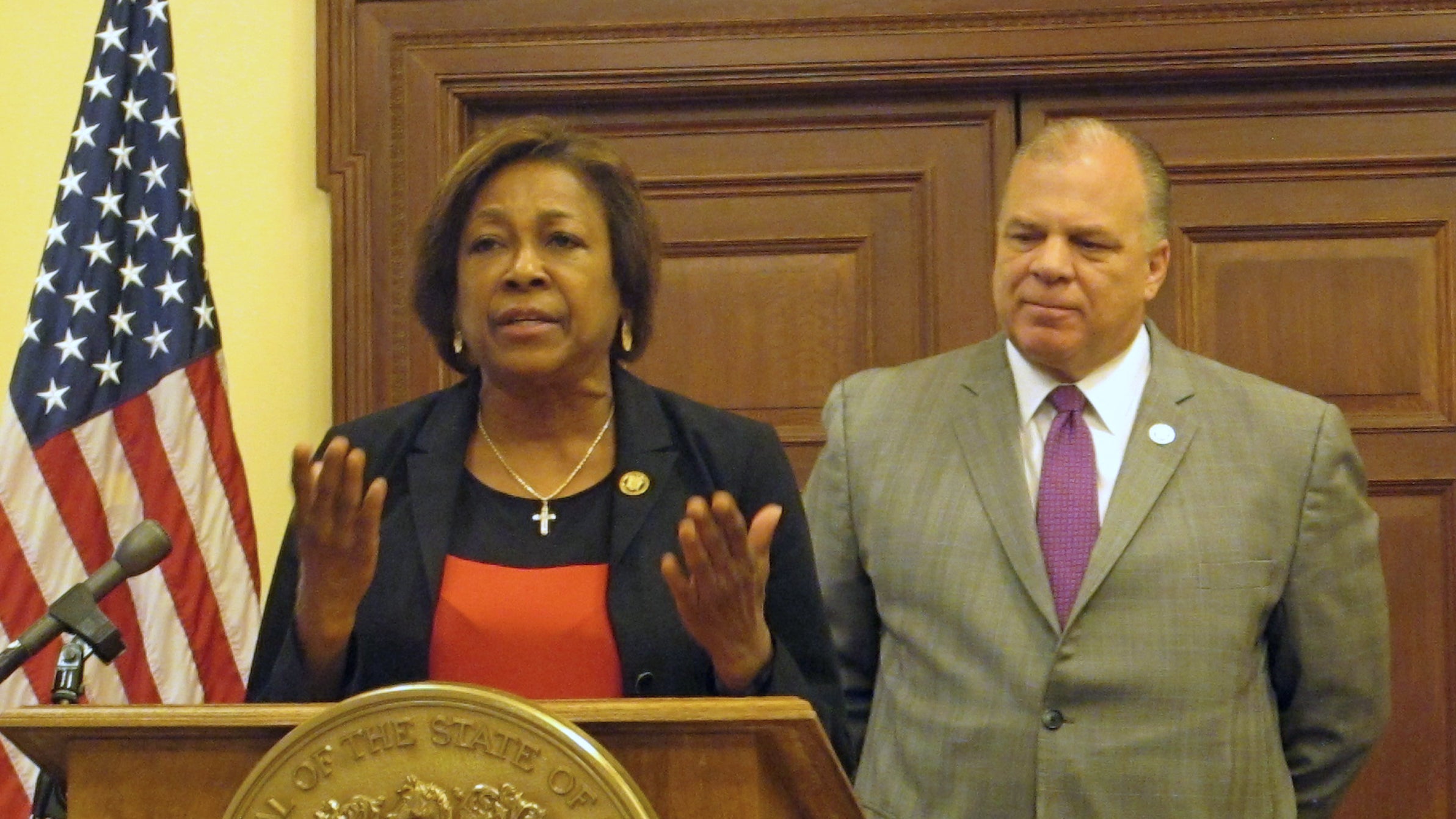N.J. Senate committee to take up $15 minimum wage

Senator Sandra Cunningham and Senate President Steve Sweeney say gradually increasing New Jersey’s minimum wage to $15 would help low-income workers and the state’s economy (Phil Gregory/WHYY)
A New Jersey Senate committee is expected to act Monday on a plan that would phase in the state’s minimum wage to $15 an hour over the next five years.
The National Federation of Independent Business says raising the cost of labor will be a blow for small businesses. It predicts the move will cost 70,000 jobs in New Jersey over the next decade.
Senate President Steve Sweeney disputes that. He says giving low-income workers more money to spend will make the economy stronger.
“We raised the minimum wage last time. They predicted thousands of layoffs. Guess what? There were thousands of jobs added,” said Sweeney, a Democrat from Gloucester County.
William Rodgers, public policy professor at Rutgers, says the number of job openings has increased but companies are not filling many of those positions because the salaries are low.
“So by raising the minimum wage you’re going to help some of these employers fill those vacancies that they’ve been having for a long period of time,” he said. “You’re also going to see improvement in morale. Productivity is going to improve.”
Sen. Sandra Cunningham says a higher minimum wage could prevent some low-income residents from turning to crime to make ends meet.
“We have had instances where people have shoplift in supermarkets. They were shoplifting bread, butter, peanut butter, jelly. They were doing this out of hunger. They were doing it because it’s necessary to take care of their families,” she said.
If Gov. Christie vetoes the legislation, Sweeney says majority Democrats will try to get voters to approve the plan through a constitutional amendment.
“We want to get it through both houses and give him the opportunity to do the right thing. I’m not hopeful but we want to give him the opportunity. The Speaker and I felt strongly we should do that. After that, then we’ll go to the voters again,” he said.
WHYY is your source for fact-based, in-depth journalism and information. As a nonprofit organization, we rely on financial support from readers like you. Please give today.




